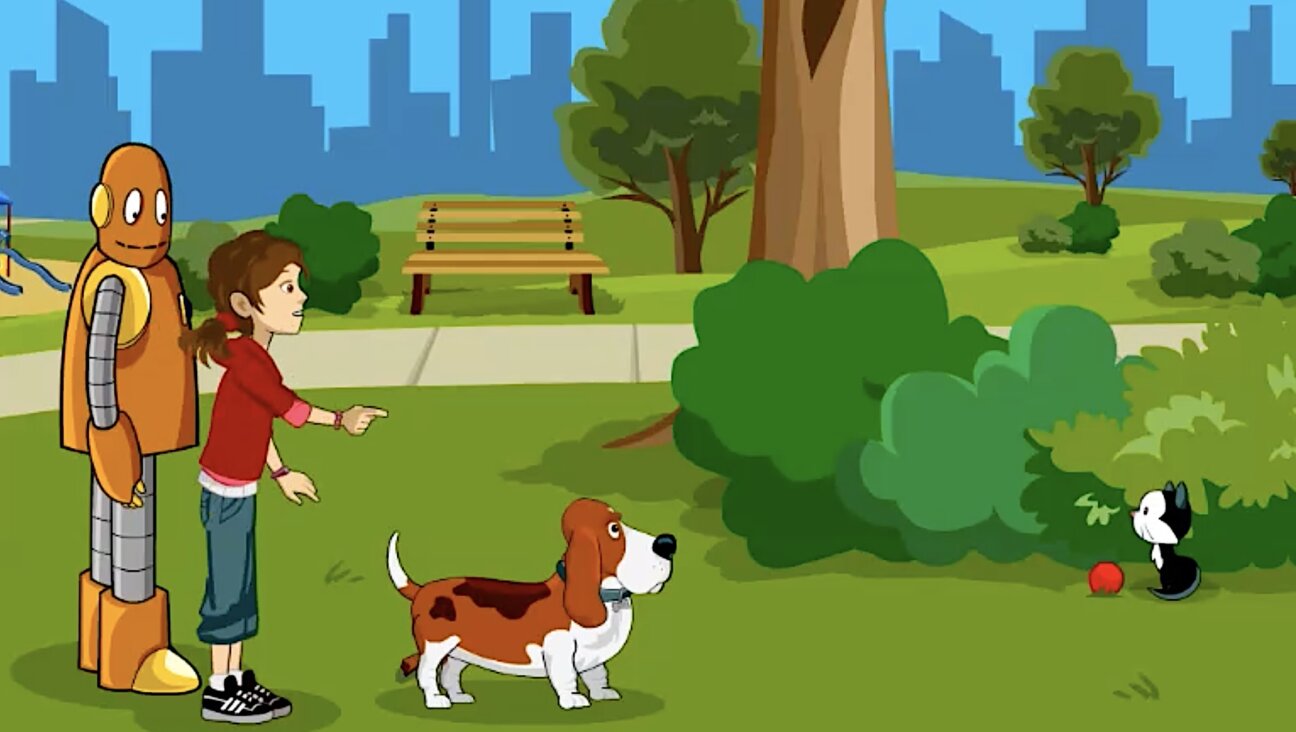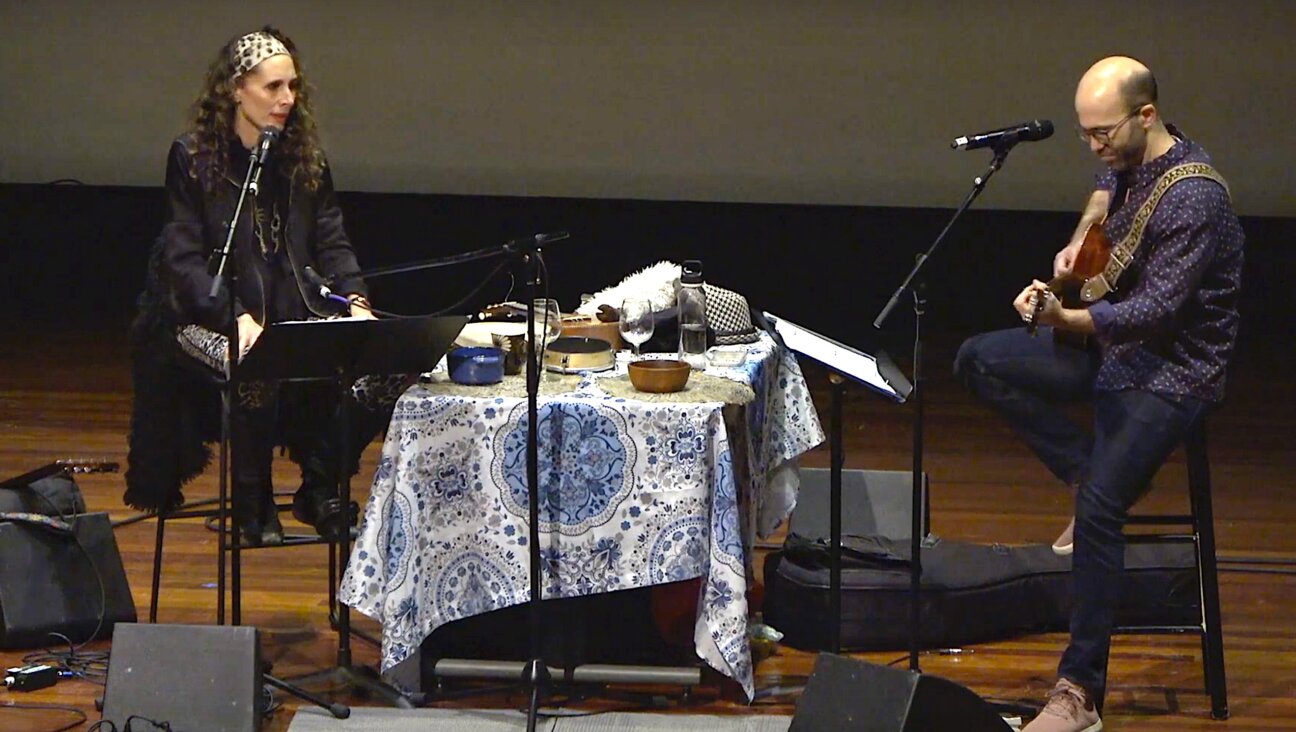Yiddish Parody Of Israeli Eurovision Song Goes Viral

Netta Barzilai performs at Eurovision 2018. Image by JACK GUEZ/Getty Images
This article originally appeared in the Yiddish Forverts.
Israel, together with the entire European continent, loses its collective mind every May when Eurovision rolls around. The internationally televised singing contest, which passes by nearly unnoticed in the U.S., is a big deal in the Jewish state. Every performance in the run-up to the garish spectacle is closely scrutinized by Israeli TV commentators, who perennially hope that the latest Israeli contestant will be able to best his or her European counterparts.
Denizens of Tel Aviv’s hip bars and cafes believe that Israel is destined to bring home the trophy this year because Netta Barzilai’s “Toy” is the standout favorite among 2018’s entrants. The Jewish state’s pride in the popularity of Barzilai’s hit may be misplaced; “Toy” sounds like a dumb parody of an American pop song. Besides several pseudo-feminist lines in English, the song’s lyrics are primarily composed of gibberish interspersed with noises that sound more like the product of a drunken chicken than a human voice.
A careful listener, though, will also note three words in Hebrew thrown in almost as an afterthought: “Ani lo buba.” (“I’m not a doll.”) Why only three words of Hebrew? Until 1998 — coincidentally, the year Israel last won Eurovision thanks to Dana International’s Hebrew-language “Diva” — singers were required to perform most of their songs in their homelands’ national language. Since 1999, however, participants have been permitted to sing in any language they choose; most elect to perform in English. The sad result is that the European and Israeli Eurovision contestants end up performing material that sounds like a poor imitation of second-rate American pop music. Watching Eurovision today you could be excused for thinking that European nations do not have their own languages or musical traditions. But I digress.
As it turns out, Netta Barzilai’s “Toy,” besides being a testimonial to the dangers of cultural homogenization, has spawned a Yiddish-language parody that is far more interesting than the original. “Goy,” performed by the Israeli actress Yael Yekel, turns Barzilai’s “Toy” into a tongue-in-cheek parody of the qualms a Jewish woman feels upon falling in love with a non-Jewish man. The video has been viewed more than 400,000 times in less than two weeks.
Yekel, who learned Yiddish at Tel Aviv University after joining Israel’s Yiddishpiel theater, wrote “Goy” together with Dr. Yaniv Goldberg, a Yiddish professor at Bar Ilan University. Although “Goy” parodies “Toy,” Yekel told the Israeli newspaper Yedioth Ahronoth that she is a big fan of Barzilai’s hit.
























